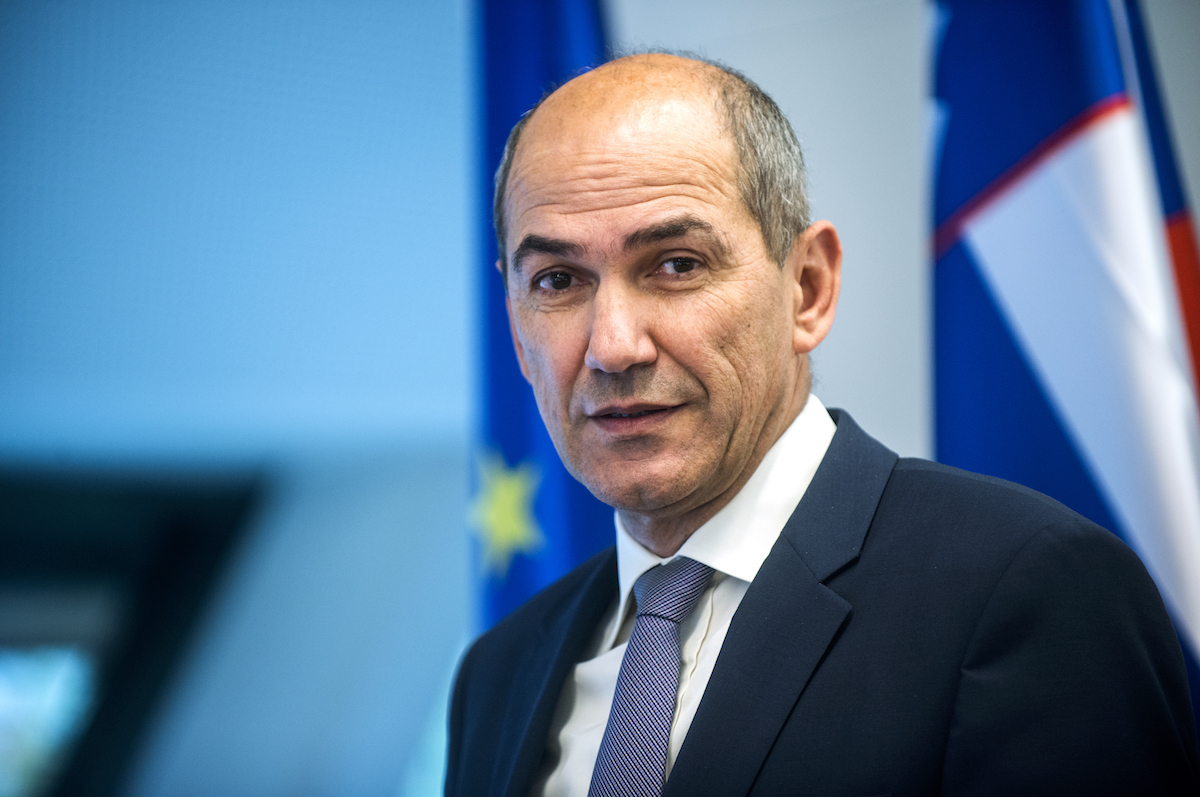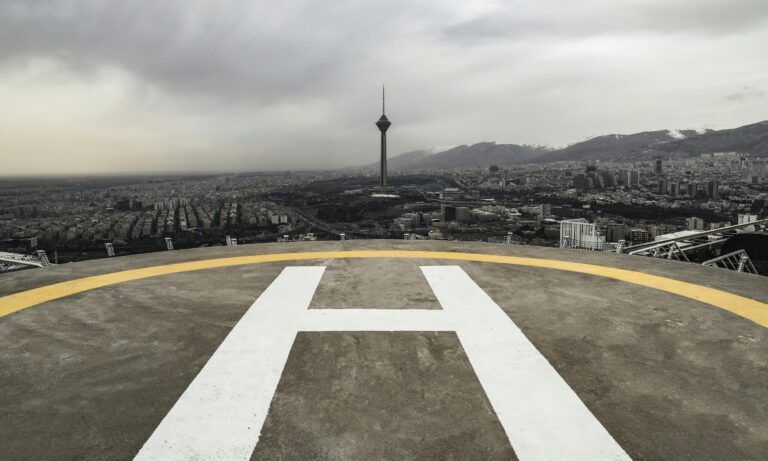Sino-Slovenian Relations Off to a Rocky Start in 2022

This article is part of both our Election Monitor series focusing on China as a topic in elections across Central and Eastern Europe as well as a series of articles authored by young, aspiring China scholars under the Future CHOICE initiative. Learn more about the program and a currently OPEN call for articles here.
A month after its Presidency of the Council of the EU ended, and in the advent of its candidacy to the UN Security Council, Slovenia is making headlines again.
The latest waves come from Prime Minister Janez Janša, who upset relations with China with his outspoken comments. Janša, who has been vocal about the EU’s lack of proactive support to Lithuania and an indecisive China policy, criticized China and talked of warming Slovenian relations with Taiwan.
As elections are coming in April, Slovenia’s China policy has become a hot topic domestically. If Janša does not secure a win, the promised warming of relations with Taiwan might be halted, with Slovenian China policy returning to the previous status quo.
Steering Away From EU Pragmatism?
The latest controversy started with an interview for India’s national TV Doordarshan where Janša discussed a range of foreign policy topics, including Xinjiang, Hong Kong, and India’s involvement in maintaining peace in the international community. The Slovenian prime minister criticized the EU’s inaction regarding Xinjiang, saying “We are very strong in words and not very strong with deeds.” Janša continued with voicing support to Lithuania, expressed sympathy for Taiwan, and announced that Slovenia is also working to exchange representatives with Taiwan.
“Of course, this is not at the level of embassies, but the same level as many EU member countries already have [sic],” he affirmed. “Frankly speaking, if we would have stronger coalitions in the past years, we would have established trade representative offices already in the past,” Janša affirmed.
Indeed, Janša is no stranger to Taiwan. He visited Taiwan in 2011 with a delegation of parliamentarians from the Slovenian Democratic Party. On that occasion, Janša declared Slovenia and Taiwan were connected by “their belief in freedom, democracy, peace, and human rights.” Regardless of these statements, Slovenia has always followed the One-China Policy, without major changes until recently.
In December 2021, a revised foreign policy strategy was revealed by the Slovenia Foreign Ministry. While China is only mentioned a few times (four, to be exact), it is defined as a “systemic and strategic competitor.” This follows the EU’s designation of China as an “economic competitor and strategic rival.” Slovenia’s foreign policy towards China has always closely mirrored that of the EU, and the revised foreign policy strategy is no different. China is also defined, along with the US and Russia, as one of the forces whose interaction will affect “Eurasia, the Pacific, and the world.”
Placing China higher on the agenda was presented as one of the priorities of the Slovenian Presidency of the Council of the EU. However, China was only discussed at the informal meeting of foreign ministers. The conclusions were unsurprising; once again, the EU called for a pragmatic approach, cooperating on issues of trade. Foreign Minister Logar, however, called on the EU to form a unified approach in light of “China’s increasing presence in numerous diplomatic and foreign policy affairs and crises.” He asserted that the EU should pursue relations with China based on European principles and values.
From Taiwan to Taipei … Sans Beijing
The crux of the controversy regarding Janša’s interview was his words of support for Lithuania in its spat with Beijing, calling Taiwan China’s “neighboring country” and the ambiguity about the naming of representative offices. This move led the public and media to expect Slovenia will, like Lithuania, use “Taiwan” in the name of representative offices. China reacted harshly, with the common accusation of departing from the One-China Policy. However, Slovenia opted for a diplomatically less contentious option.
On January 28, Minister Logar informed the National Assembly Committee on Foreign Policy that Slovenia and Taipei are planning to reciprocally open economic and cultural offices. He emphasized the offices will not carry the name “Taiwan,” but “Taipei”. At the Committee’s session, Slovenian MPs also reaffirmed the country’s adherence to the One-China Policy. As the dust begins to settle, it is clear the actual opening of economic and cultural offices of Taipei in Slovenia, and vice-versa, is not the issue. The same offices can be found in most member states of the EU, even an office representing Taiwan in the EU. What is contentious, however, is the Prime Minister’s claim that Slovenia will support any decision Taiwan makes regarding its status, whether it be unification with mainland China or “living independently,” and even calling Taiwan a country.
Whether such wording was intentional or not, Janša has a history of making controversial statements and maverick decisions that upset both the domestic public and the international community. In August, he claimed the EU will not open humanitarian corridors for Afghan refugees, although the EU leadership had different plans. Janša is known for taking a harsh stance on the rule of law issue in the EU, calling it “politically abused and used for a political fight.”
This is also not the first time Janša was involved in disputes regarding sovereignty issues. In April 2021, the international community was shaken with news of a non-paper, which was allegedly written by Janša and delivered to President of the European Council Charles Michel, on the peaceful dissolution of Bosnia and Herzegovina.
Domestic Divisions
Domestically, the expression of support for Taiwan also created quite a backlash.
The opposition was quick to reaffirm Slovenia still respects the One-China Policy, regardless of what the Prime Minister says. MEP Milan Brglez (S&D/SD) tweeted: “Shameless and crazy privatization of foreign policy. The PM [doesn’t care about] the Foreign Affairs Act and the National Assembly, as he pits us against at least two superpowers.”
In reaction to the controversy, the National Assembly Committee on Foreign Relations called an extraordinary meeting, which Janša said was “requested” by the Chinese Communist Party through the center-left/left KUL coalition and the Social Democrat party in Slovenia. He also tweeted that “[o]nly the proud successors of the dictatorship in the SD party can oppose Slovenia’s equal and sovereign European policy and agree to a second-class one. Because their role models are in power in China.”
However, the backlash against harsher China policy continued also on other issues. The center-left opposition overturned the ‘anti-Huawei’ bill in Parliament at the beginning of February. The opposition parties have been critical of the bill since Slovenia signed it in August 2020, concerned about its effects on Slovenia-China relations and the supposed “US surveillance and misuse of IC technologies for military, economic, and political purposes” the bill could enable.
Business Feeling the Heat
As elections in April draw closer, signaling on foreign policy issues has undoubtedly been seen as a winning strategy by Janša.
This time, however, the consequences were felt by Slovenian businesses. Nina Pejič, Secretary-General of the Slovenian-Chinese Business Council, said “some companies received cancellations of purchase agreements, cancellation of physical and online sale of products. Some partners from the Chinese side exited already negotiated business investments.” Minister of Economic Development and Technology Zdravko Počivalšek emphasized that “personal views, even if given with the best of intentions, should take economic realities into account.”
While China accounts for less than one percent of Slovenia’s exports, this number grew by roughly four percent in the last three years. In imports, however, China represents roughly seven percent of the volume, with the number growing by 41 percent in the last three years. Fraying of relations could also bring wider, indirect consequences, such as pressure on EU companies to exclude Slovenian products from their supply chain. This could affect Slovenia’s trade with its top partners such as Germany, Italy, Croatia, and Austria.
To remind of the Lithuanian example, China tightened the customs procedure, stranding Lithuanian containers at the border. Bigger European companies such as BMW were even pressured to remove products of Lithuanian origin from their supply chain. According to the Bank of Lithuania, this could affect the country’s GDP in the following years. In 2022, GDP growth could decrease by 0.5 percent and up to 1.3 percent in 2023. While Slovenia conducts most trade within the EU and the Western Balkans, economic coercion measures would have a negative effect on the future of its growing trade with China.
Ferocious Relations in the Year of the Tiger
Reacting to the developments, the Chinese Foreign Ministry called Janša’s statement “dangerous.” In what was an expected reaction, it reiterated that Taiwan is part of China and expressed strong opposition to Prime Minister Janša’s statement calling Taiwan a country, as well as his announcement that the two sides will exchange economic and cultural offices.
So far, no further economic consequences have been reported. The crisis was perhaps mitigated by Slovenia’s reaffirmation of the One-China Policy, and clarification on the name of the offices. Slovenia also did not join the diplomatic boycott of the Winter Olympic Games in Beijing spearheaded by the US, further smoothing bilateral ties.
Whether Slovenia and Lithuania’s actions will develop into a larger movement within the EU is yet to be seen. At the end of the day, China remains an important trade and economic partner for the EU, even the smallest of its member states. That the same results in trade with Taiwan would be replicated is not a guarantee, although Taiwanese media welcomed Prime Minister Janša’s statements.
Domestically, Janša has been politically tough on China, casting aspersions that it is financing the center-left/left coalition KUL. Nonetheless, Janša has been generally striving to maintain good economic relations with China. Despite his remarks, Huawei, for example, was given a commemorative plaque awarded by the Government of Slovenia for its efforts to prevent the spread of COVID-19. It seems Slovenia under Janša’s administration is keen on sitting on the fence, benefiting from trade with both China and Taiwan while keeping overall policy somewhat ambivalent.
However, it cannot be ruled out that the latest moves might signal an honest change of tack. The opening of cultural and economic representative offices, as well as a tougher stance on China, may herald a new Slovenian foreign policy: less pragmatic, more daring in diverging from the EU’s stance, and all the while emphasizing transatlantic cooperation.
In the end, it is clearly in Slovenia’s economic interest to keep relations with China warm. Whether it is also in Janša’s personal interest remains an unanswered question.
As Slovenia heads toward elections in April, a change in the administration might also bring a return to the pragmatic China policy stance. In the end, this pivotal election could halt the process of exchanging representative offices with Taipei in its tracks.
Written by
Tinkara Godec
tinkaragTinkara Godec is an MA student of Economy and Society of East Asia at the University of Vienna, focused on digitalization and EU-China relations. She is also an Account Manager at ProjectHouse CN, a Slovenian consultancy focusing on China.


